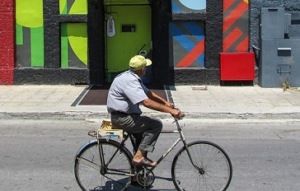News
Elderly cyclists increasingly accident-prone in traffic
This article is more than 6 years old.
Biking is good exercise, but can be risky for older people, who tend to get more seriously hurt in accidents

The elderly are increasingly having accidents when they are out biking on their own (photo: dimitrisvetsikas1969/pixabay)
Figures from the national statistics keeper Danmarks Statistik on the number of people suffering injuries in traffic reveal encouraging news for 18 to 19-year-olds, but when it comes to people aged 65-74 on bikes, the trend is not so encouraging.
The tally of elderly people hurt in traffic today is pretty much the same as it was 10 years ago – despite a general fall in the number of traffic accidents resulting in injuries.
Biking can damage your health
However, accidents to cyclists now account for 58 percent of the 65 to 74-year-old age group’s traffic injuries compared to 48 percent in 2007.
“Generally speaking, elderly people are more at risk as vulnerable road users. One of the reasons is that the older you are, the more the body is likely to sustain an injury in an accident,” said Henning Christiansen, an officer at Danmarks Statistik.
READ ALSO: Number of traffic fatalities rose last year
The figures also reveal that over a ten-year period, the character of the accidents involving the elderly has also changed. In 2017, solo accidents – accidents involving only the person in question – accounted for 78 percent against 73 percent in 2007.
You can keep your hat on
When older cyclists get hurt, they often injure their shoulder, arm or hand, with the next-most-common damage being to the hip, leg or foot.
There are encouraging signs though. “The number of head injuries has not increased, which points to the fact that elderly people are remembering to wear their bike helmets,” said Christiansen.










































